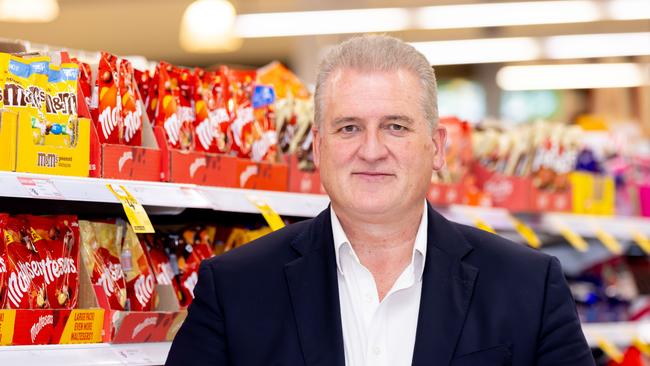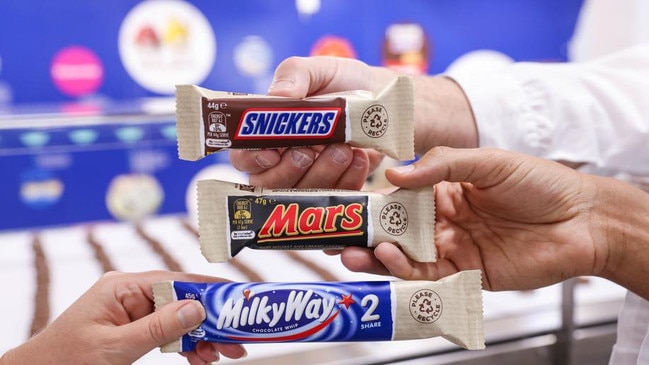Mars Wrigley boss believes Australian shoppers among the most under pressure
The local boss of chocolate giant Mars believes Australians are among the most under pressure in the world, making $17 chocolate rabbits at the supermarket a hard sell.

The local boss of global giant Mars Wrigley predicts that historically high shelf prices for Easter confectionery this year will leave supermarkets clearing excess chocolate bunnies and eggs after the holiday.
Driven partly by a 400 per cent spike in international cocoa prices, Mars Wrigley managing director Michael Ryan expects that Easter inventory has met challenging market conditions in Australia where he believes the consumer is among the most stretched in the world. A combination of steeper grocery bills, high rents and bloated household debt has forced people to count every dollar at the shops.
“It will be quite interesting what happens in Easter. If I look at the Easter trade, and I’ve been out talking to a couple of retailers, there’s a feeling that there’s a lot of Easter stock in stores, sitting around,” Mr Ryan told The Australian.
“And maybe asking consumers to pay $17 for a small Easter rabbit is being met with some resistance at the moment and we may see a bit of discounting in the months to come to get rid of that product.”
A 20-year veteran of the family owned Mars Wrigley chocolate, gum and pet food empire, Mr Ryan has returned to Australia after running the Mars chocolate operations in Europe and reflecting on his experience in other economies.

“I think in the Australian marketplace there is definitely a feeling the consumer is constrained and if you look at the disposable income change in Australia it is one of the most impacted markets in the world,” Mr Ryan said.
Food, energy and housing are the largest imposts.
“When you look at the data on disposable income it would suggest consumers have been hit by inflation on food items to start with, but also housing inflation which is high and whether you are a renter or have a mortgage that has had a significant impact. And we have quite a high level of debt in Australia and so that cocktail means the consumer is quite constrained.”
Mr Ryan said the Mars family, the American dynasty that still owns the chocolate empire and is estimated to be worth more than $200bn, were sensitive to the tougher trading environment and brittle consumer confidence in Australia.
This also included the high cost of manufacturing in Australia, which Mars Wrigley has previously called out as among the most expensive countries in the world to set up and run a plant.
“They recognise Australia is a tough manufacturing environment with high costs, with high costs of labour and utilities in particular and they’re also aware globally of the challenge of high cocoa prices, which is a really unique thing at the moment.”
In May 2024, global food suppliers including Mars, Nestle and PepsiCo issued stark warnings about the cost of manufacturing in Australia cementing the nation’s reputation as a high-cost region. The US-headquartered Mars runs a global network of more than 130 factories in almost 70 countries.
Mars validated this in a submission to last year’s Senate inquiry into supermarkets.
Mr Ryan said Mars Wrigley’s portfolio of chocolate and gum brands such as Maltesers, Snickers, M&M’s, Milky Way, Eclipse and Juicy Fruit have held up well as people make allowances in their budgets for an “affordable treat”. But there were changes in the popularity of product sizes as those same shoppers looked to bigger units to extract better value.
“And what we’re seeing is probably a trend towards big brands that represent good value because they’re a known commodity, and maybe a switch away from some high price, premium-niche offerings in the marketplace. So I think that’s what we see in the confectionery market,” he said.
“We are happy the way we are going. I think if you’ve got strong brands and you’re working well with retailers as your trade partners and you are managing your cost base then that allows you to continue to invest to drive growth.”





